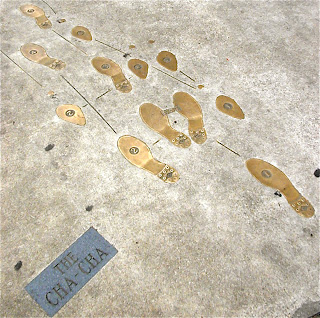
Critical thinking begins with challenging ourselves on listening and not taking things personally when someone offers an opinion or viewpoint different from our own. Its about asking more questions and seeking to better understand. Critical thinking is about being curious. Critical thinking is about being guided by principles. The civic group, Rotary, have The Four-Way Test they recite at their weekly meetings and use in decision making. It is the keystone to ethical behavior leading to better conversations, better interactions and better community.
- Is it the TRUTH?
- Is it FAIR to all concerned?
- Will it build GOODWILL and BETTER FRIENDSHIPS
- Will it be BENEFICIAL to all concerned?
The Rotary Four Way Test might be a good model for all of us to use in becoming better critical thinkers. It might just help reduce our deficit of critical thinking. It would help a major “talking head” with 3 million nightly viewers to be more thoughtful when he makes a statement that he believes 10% of all Muslims are terrorists. (There are nearly 1.4 billion Muslims in the world. Does he really believe there are nearly 1.5 million Muslim terrorists? The National Security Administration says that number is grossly wrong as well as terrorism is not limited to any one group.) It would help if a U.S. Senator would check his facts before he makes a statement that over 90% of Planned Parenthood’s funds go to abortions. Only 3% of their money goes to abortion.
The Rotary Four Way Test might challenge the corporate CEO who makes 300, 500 and even 900 times what the lowest paid worker in the organization makes. Jim Wallis writes that the U.S. budget is a moral document. Perhaps The Rotary Four Way Test might help our law makers deal with the budget and our economy morally.
Scott Peck, author of The Road Less Traveled suggests we love others by first loving ourselves. The work of learning to love ourselves begins with self-discipline including learning to delay our desires, be accountable for our choices and actions, accept truth as reality and learn to create and maintain balance in our lives. Perhaps if we all practiced more self-discipline, our moral recovery would aid our economic recovery.
Wallis’ book has challenged me to be more thoughtful in my purchases including where I shop. I will think about my need versus my want. I am going to consider others needs versus my wants. I’m going to make more of an effort to purchase locally including farmer markets. I am going to work to spend less time using social media and email and going to have face-to-face conversations with others. I am going work at having meals with others, eat more slowly and be in conversation with others. I am going ask more than tell. I am going to be even more thoughtful about recycling. I am going to be even more thoughtful about my use of water and energy. I have been simplifying my lifestyle and I am going to be even more thoughtful in this endeavor. My next car purchase will be a used car as well as a more fuel efficient, energy saving vehicle. I am going to contact my legislative representatives and voice my opinion and concern more often. I am going to take the approach my actions are for the long term and to benefit others as well as myself rather than the short term and just for me. I am going to make sure my idea of the “good life” is inclusive of others.
I know I will fail at these attempts, but I am also going to keep failing forward.

2 comments:
Jason Swain emailed...
Thank you for writing this and for sharing it with me. This is extremely well-written and absolutely right on the money. It expresses very clearly what I believe a lot of people are feeling and gives great examples of what to do about it. I am very glad to know about Jim Wallis’ book.
Dave, I just finished "The Big Short" which is about the financial melt down. Made me sad at the greed which has left so many people in the ditch. Your book sounds interesting. I will read it. Best wishes. Norrie Wake
Post a Comment